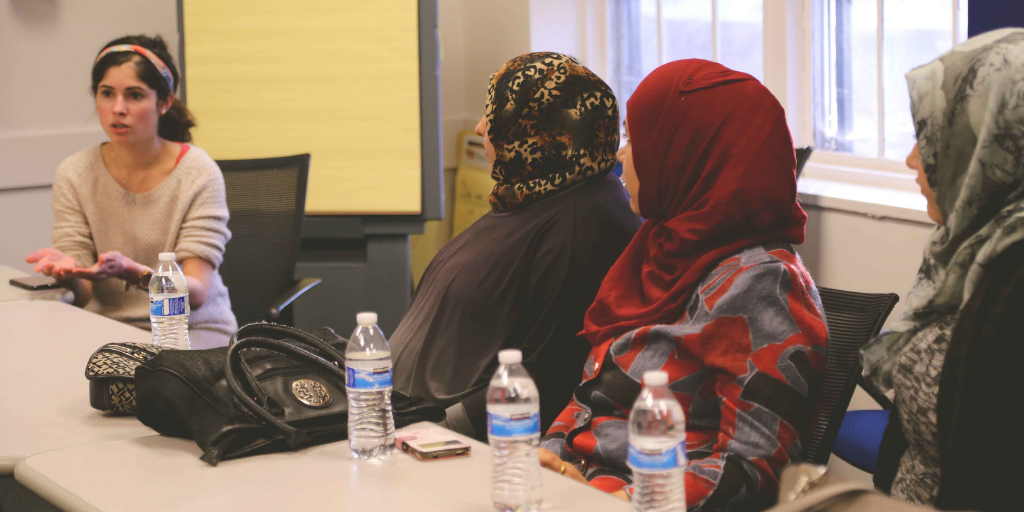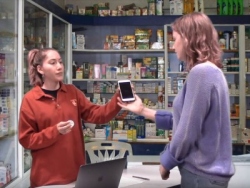How Can We Help Durham’s Refugee Population Access Health Services?
December 5, 2018
New resources help Durham refugees tackle resettlement challenges
Highlights from the Bass Connections Annual Report

Amid intensifying political controversies over immigration, resettled refugees continue to need help with life’s basics as they adapt to radically different social and cultural environments.
Durham received about 14% of the 3,000 families resettled to North Carolina between July 2015 and June 2016. The influx overwhelmed local health providers, which team leader Emily Esmaili, a pediatrician at the Lincoln Community Health Center in East Durham, experienced firsthand.
In response, the Bass Connections team Addressing Global Health Needs among Refugee Children and Families in Durham County surveyed refugees and aid agencies to identify ways to reduce health disparities. In addition to producing a brochure in multiple languages that provides key information about resources, the team made recommendations for improving efficiency of care by streamlining services, expanding the number of available interpreters in healthcare settings and increasing collaboration among refugee resettlement agencies and medical providers.
I was looking for something to bring my learning out of the classroom. It has been really rewarding to work with faculty, graduate students and other undergrads. To engage in the classroom and then work on this real-world problem was very insightful for me. –Pranav Ganapathy ’20
Last summer, team members shared findings at the 2018 North American Refugee Health Conference in Portland.
This fall, faculty team leader Deborah Reisinger continued this work through a semester-long course that explored the global migration and resettlement of Francophone refugees. The course included a service learning component in which students worked with French-speaking refugee families to help manage the challenges of resettlement.
 Students in the course also created informational videos designed to help new arrivals adjust to life in North Carolina. The videos include simulations of situations that newcomers might find confusing, such as buying medications, shopping in a supersized grocery store and riding public transit. According to Reisinger, these videos will provide case workers and volunteers with another tool they can use to aid families’ adjustment.
Students in the course also created informational videos designed to help new arrivals adjust to life in North Carolina. The videos include simulations of situations that newcomers might find confusing, such as buying medications, shopping in a supersized grocery store and riding public transit. According to Reisinger, these videos will provide case workers and volunteers with another tool they can use to aid families’ adjustment.
Students presented their videos, which were recorded in English and translated into French, to members of the Duke and Durham community on November 29. In the future, these videos will be available online through DukeHELLO (Help for English Language Learners Online).
Learn More
- Browse the Bass Connections 2017-18 Annual Report.
- Check out this 2017-18 project team, and learn more about Deborah Reisinger’s Fall 2018 course.
- Explore project teams, courses and summer programs in the Global Health theme.
Images: Medical student Rayan Kaakati speaks at a focus group with members of Durham’s refugee community (Courtesy of Emily Esmaili); Pranav Ganapathy (Courtesy of Pranav Ganapathy); Students in Deborah Reisinger’s course demonstrate how to request translation services at a pharmacy in one of their instructional videos (Courtesy of Duke Global Health Institute; read the original story on Reisinger’s course)
